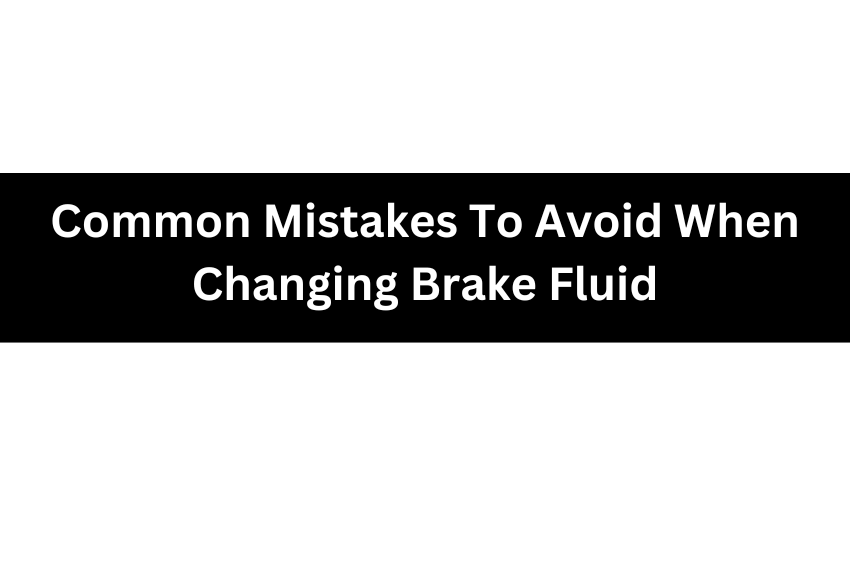Changing brake fluid is an essential part of car maintenance.
However, if not done correctly, it can lead to serious problems.
In this guide, we’ll discuss common mistakes to avoid when changing brake fluid and provide tips for a safe and successful procedure.
What Are The Common Mistakes To Avoid When Changing Brake Fluid?
Using The Wrong Type Of Brake Fluid
It’s important to use the right kind of brake fluid in your car.
Brake fluid helps your brakes work properly
However, there are different types of brake fluid, and each type has a number called a DOT rating.
The DOT rating tells you how strong the brake fluid is.
Using the wrong type of brake fluid can be dangerous.
It can make your brakes work less well, or even stop working altogether.
In some cases, using the wrong brake fluid can damage your brake system.
This can be expensive to fix, and it can also make your car unsafe to drive.
Also, do not mix different types of brake fluid.
Mixing brake fluid can cause a chemical reaction that damages your brake system.
If you’re not sure which type of brake fluid to use, it’s best to check your owner’s manual or ask a mechanic.
Spilling Brake Fluid On Brake Pads
Brake fluid is corrosive, which means it can damage things it touches.
If brake fluid gets on your brake pads, it can damage them.
Brake pads are important for stopping your car.
They help to slow down your wheels when you press on the brake pedal.
If your brake pads are damaged, it can be dangerous to drive your car.
So, you need to be careful when changing your brake fluid.
If you spill brake fluid on your brake pads, you should clean them off as soon as possible.
You can use a clean cloth and some brake cleaner to clean them.
If you’re not sure how to clean your brake pads, you should take your car to a mechanic.
They can inspect your brakes and make sure they are safe to drive.
Overfilling The Master Cylinder Reservoir
The master cylinder reservoir is a small tank that holds brake fluid.
However, make sure to keep the master cylinder reservoir filled with the right amount of brake fluid.
If you put too much brake fluid in the master cylinder reservoir, it can cause problems.
Too much brake fluid can create air pockets in your brake system, and Air pockets can make your brakes feel spongy or squishy.
They can also make your brakes less effective.
In addition, too much brake fluid can cause leaks.
If your brake fluid is leaking, it can damage your brake system.
However, check the brake fluid level in your master cylinder reservoir regularly.
The correct level is usually marked on the reservoir.
If the level is low, add more brake fluid.
But, be careful not to overfill it.
Letting Moisture And Debris In
Also, It’s important to keep brake fluid clean and dry.
Moisture and debris can get into brake fluid and damage your brake system.
Moisture can cause rust and corrosion, which can damage the parts of your brake system that come into contact with brake fluid.
If your brake system is damaged, it can make your brakes work less well.
However, to prevent moisture and debris from getting into your brake fluid, you should keep the bleeder screw cap on.
You should also avoid driving through deep puddles or mud.
If your brake fluid gets wet or dirty, you should have it replaced.
Failing To Reinstall The Rubber Cap On The Bleeder
The bleeder screw is a small valve that helps you bleed the brakes.
When you bleed your brakes, you remove air from the brake system.
This is important because air can make your brakes feel spongy or squishy.
After you bleed your brakes, you should reinstall the rubber cap on the bleeder screw.
The rubber cap helps keep moisture and debris out of the brake system.
As we’ve said, Moisture and debris can damage your brake system and make your brakes less effective.
If you forget to reinstall the rubber cap, moisture and debris can get into your brake system.
This can damage the parts of your brake system that come into contact with brake fluid.
